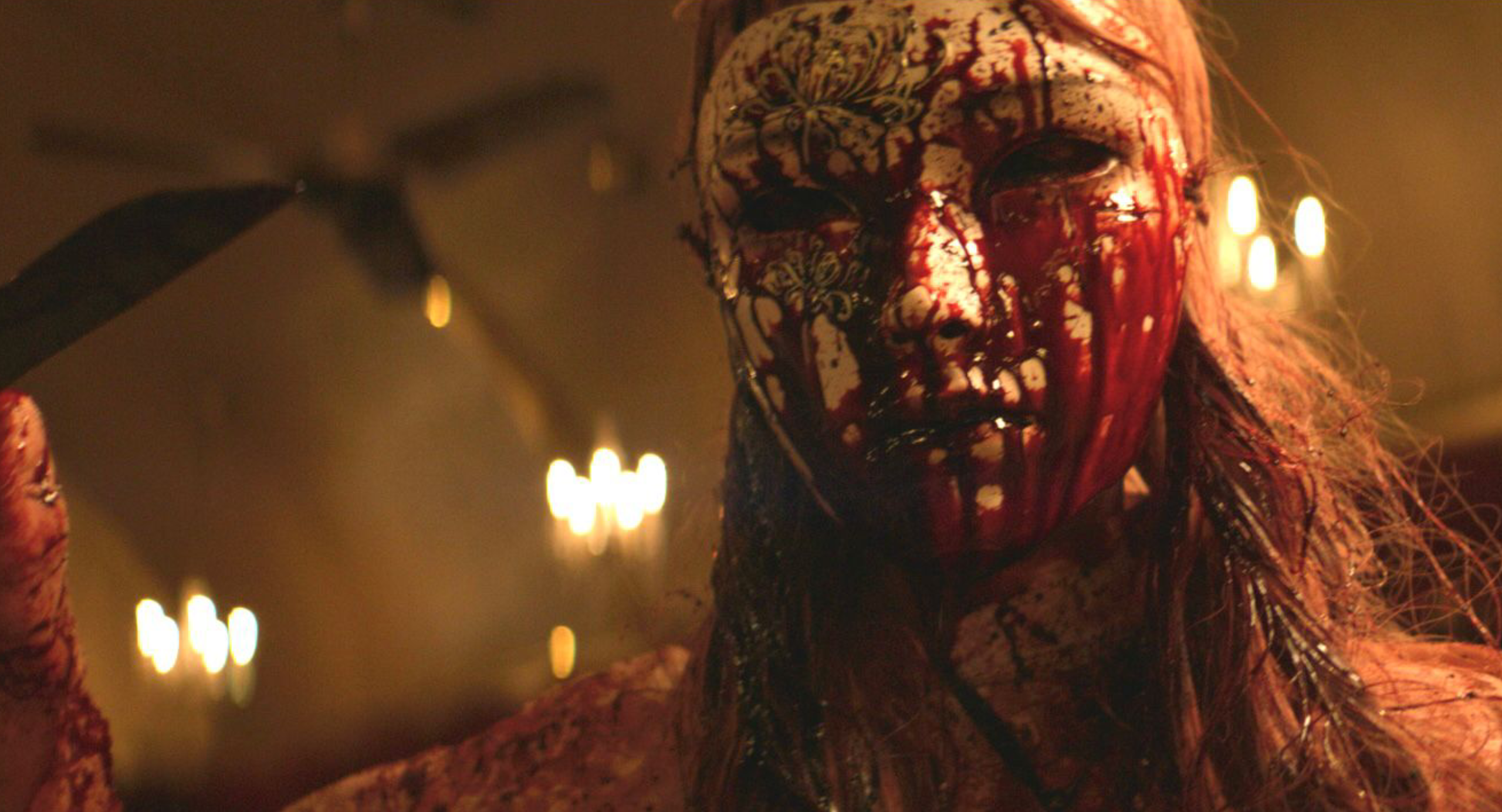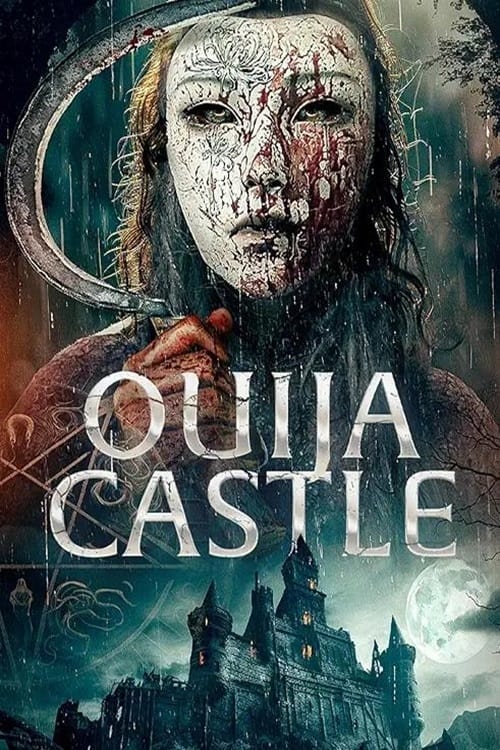Ouija Castle – Film Review
Published August 22, 2024

Ouija Castle, directed by Louisa Warren and penned by Jasmine Ebony Thomas, arrives on the horror scene with a premise that tantalizes but ultimately falls short of its potential. The film, which centers around the dark aftermath of Princess Thalia’s banishment by her power-hungry mother, Queen Velma, attempts to weave a tale of supernatural intrigue and royal betrayal. However, it struggles to maintain a coherent narrative, and the chilling atmosphere it aspires to achieve remains frustratingly out of reach.
The story begins with a promising setup. After the death of King Eldric, the once-prosperous kingdom falls into disarray as Queen Velma, played with a measure of steely resolve by Danielle Scott, seizes control. Fearing that her daughter, Princess Thalia (Mya Brown), might pose a threat to her newly acquired throne, Velma casts a powerful spell, plunging Thalia into a perpetual sleep. The film’s central conflict arises when this dark act unwittingly triggers a series of supernatural events that threaten to destroy the very kingdom Velma fought so hard to control.
The plot weaves together various characters who each play a role in the unfolding drama. Chrissie Wunna’s Lia is a sympathetic figure, a servant loyal to the princess and determined to save her from her cursed fate. Sophie Rankin as Sofia, Velma’s enigmatic advisor, offers a performance that hovers between cold calculation and barely concealed fear, hinting at the consequences of dabbling in dark magic. Lila Lasso’s Delia, someone with her own mysterious motives, adds another layer of complexity, though her character ultimately feels underdeveloped. Finally, there’s Zazid, portrayed by Danielle Scott, who, while integral to the plot’s progression, never quite evolves beyond her role as Velma’s obedient enforcer.
To its credit, Ouija Castle does have moments where its potential shines through. The gothic aesthetic, though unevenly executed, occasionally manages to evoke a sense of dread and foreboding. The castle itself, with its labyrinthine corridors and shadowed corners, serves as an effective setting for a tale of haunted royalty. Warren’s direction hints at an understanding of horror’s visual language, with certain scenes—particularly those involving Thalia’s enchanted slumber—exuding a genuinely eerie atmosphere. The concept of a royal court beset by malevolent spirits is compelling, offering a unique twist on the haunted house trope.
The performances, though inconsistent, have their moments as well. Mya Brown as Princess Thalia, though she spends much of the film in a state of enchanted slumber, conveys a quiet vulnerability that makes her plight sympathetic. Danielle Scott’s portrayal of Queen Velma, while lacking in emotional depth, captures the ruthless ambition of a woman driven to secure her power at any cost. There is an underlying tension in her interactions with Sofia, played by Sophie Rankin, suggesting a more complex relationship that the script, unfortunately, never fully explores.
However, these moments of promise are overshadowed by the film’s numerous shortcomings. The most glaring issue is the disjointed narrative, which struggles to maintain a coherent flow from one scene to the next. The film’s pacing is erratic, with long stretches of monotonous dialogue interspersed with sudden bursts of supernatural action that feel more confusing than thrilling. Warren’s direction, while competent in certain scenes, fails to unify the disparate elements of the story into a compelling whole.
The script by Thomas is equally problematic. The dialogue is often stilted, with characters delivering lines that feel out of place or overly expository. The central conflict—the battle between Thalia’s loyalists and Velma’s forces—is underdeveloped, with key plot points either glossed over or explained in frustratingly vague terms. The motivations of certain characters, particularly Delia and Zazid, are murky at best, leaving the audience to wonder why they behave the way they do.
Perhaps the most disappointing aspect of Ouija Castle is its wasted potential. The film’s premise, which blends elements of gothic horror with political intrigue, is rich with possibilities. Yet, it consistently fails to capitalize on these opportunities, opting instead for cheap scares and cliched plot twists. The supernatural elements, which should have been the film’s main draw, are poorly executed, with special effects that range from passable to downright laughable. The titular Ouija board, which one would expect to play a central role in the story, is relegated to a minor plot device, appearing only sporadically and with little impact on the overall narrative.
The film’s climax, which should have been a crescendo of tension and horror, falls flat due to a lack of emotional investment in the characters. By the time the final confrontation between Thalia’s supporters and Velma’s forces arrives, the audience is left feeling more exhausted than exhilarated. The resolution, while tying up the main plot threads, fails to deliver a satisfying conclusion, leaving several questions unanswered and key character arcs incomplete.
Ouija Castle is a film that aspires to greatness but falls far short of the mark. Its intriguing premise and moments of atmospheric tension are overshadowed by a muddled narrative, underdeveloped characters, and missed opportunities. While there are glimpses of a better film lurking beneath the surface, they are ultimately lost in a sea of mediocrity. For fans of gothic horror, Ouija Castle may offer a few fleeting moments of enjoyment, but for most viewers, it will likely prove to be a frustrating and forgettable experience.
